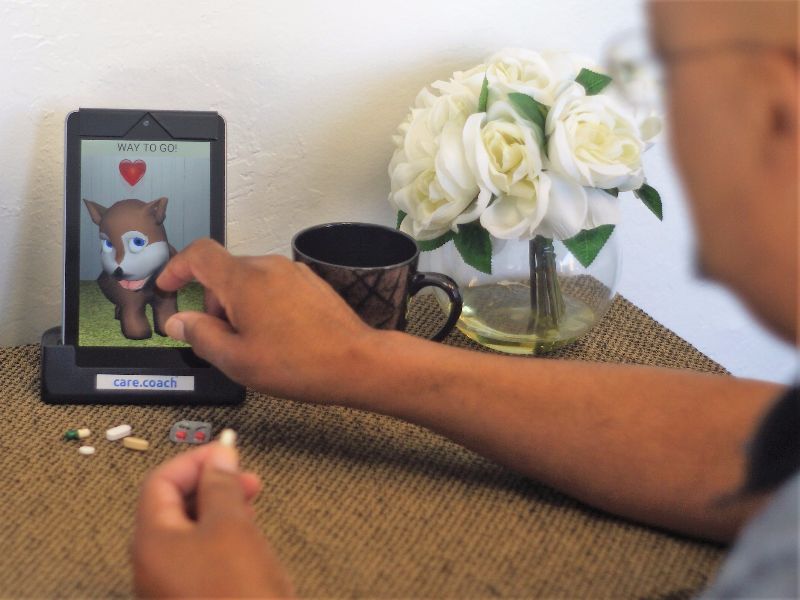Virtual pets provide support and assistance to people with Alzheimer’s disease

Indiana University School of Medicine researchers are conducting a study to see how people who are suffering from Alzheimer’s disease and related dementias can benefit from using a tablet computer that has an artificial intelligence program that looks like a virtual pet. The virtual pet program has been developed by a group of researchers who used computers and robots to help create a natural relationship with the patient.
The goal of the Care Coach study is to see how patients build a relationship with the virtual pet. Another goal the researchers have is to help the patients be as independent as possible by utilizing this program.
“We are hoping to learn how to better engage your loved ones with Alzheimer’s and other dementias and help them stay as healthy and independent as possible,” said Malaz Boustani, MD, Richard M. Fairbanks Professor of Aging Research at IU School of Medicine. Boustani is also the director of the Center for Health Innovation and Implementation Science (CHIIS), which is a program of the Indiana Clinical and Translational Sciences Institute (CTSI).
The virtual pet on the tablet provides the patients with health-related assistance, such as reminders to take their medications, use their walkers, or drink water. The pet can also help the patient with everyday activities, like daily socialization and physical wellness, as well as provide entertainment, such as games or music.
The researchers said they have received great feedback from caretakers of the patients who have been using the Care Coach tablets. May is a caretaker for Richard, who has Alzheimer’s disease. Richard uses the Care Coach tablet, and his virtual pet is Buddy, the dog.
“Richard’s virtual pet, Buddy, is kind and thoughtful,” said May. “He is a great friend who helps Richard be more aware of what is going on in the world. Buddy even played Happy Birthday for Richard and had virtual birthday candles displayed for him on the tablet.”
Recruitment for the study is still open, to get involved, visit the study page here.
